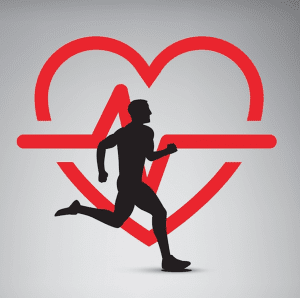Healthy Living
 Long before Jane Fonda donned her first pair of leg warmers, “cardio” has been a major buzz word in the exercise world. According to an article published by Muscle Mag Fitness, both the term and the style of exercise were introduced in 1968 by a team working at San Antonio Air Force Hospital in Texas.
Long before Jane Fonda donned her first pair of leg warmers, “cardio” has been a major buzz word in the exercise world. According to an article published by Muscle Mag Fitness, both the term and the style of exercise were introduced in 1968 by a team working at San Antonio Air Force Hospital in Texas.
Cardio, or aerobic exercise, refers specifically to exercise that helps improve our bodies’ consumption of oxygen. Improving our oxygen efficiency increases our metabolic (energy generation) process. Common examples of aerobic exercise include running, walking, swimming, cycling, and any number of aerobic-style classes. As long as the physical activity involves prolonged, continuous movement that keeps your heart rate elevated at an ideal level, it qualifies as “aerobic.”
Like any other muscle, your heart becomes stronger with regular exercise. Regular aerobic/cardiovascular activities help your lungs, heart, and blood supply operate more efficiently, and with less effort. The physiological benefits of cardio exercise are vast and many. Regular cardio training:
- Increases stamina & reduces fatigue
- Helps control blood sugar
- Improves the muscles’ ability to use fat
- Strengthens the immune system
- Increases red blood cell count
- Improves circulation
- Reduces blood pressure
- Decreases body fat
- Tones muscles
- Increases bone density
- Reduces stress & improves sleep
- Eases joint impact for arthritis patients
In addition to all the great ways cardio helps your body, it does brilliant things for your mind. In a study published by US News & World Report, cardio exercise increases your brain’s output of “calming” chemicals like serotonin and dopamine. It’s also possible that regular cardio can counter the effects that stress would otherwise have on the aging process. Aerobic activity also helps our brains produce more new brain cells, and new connections between these cells, thereby improving our learning skills. The more complex the activity, the bigger boost your brain gets. Activities that require intense concentration to follow, or to learn specific steps, are the best. Furthermore, aerobic exercises help keep your brain active, which defends against memory loss and supports your long-term vocabulary retention. Studies suggest that exercise, in particular, helps protect the hippocampus, the part of the brain where Alzheimer’s first manifests itself.
Now if you’re ready to give your heart and mind a good workout (with or without the leg warmers), check out our schedule of awesome aerobic Group X classes at the YMCA branch closest to you: www.ymcabham.org/class-finder. We look forward to seeing you there!
-Jean Bowick
YMCA of Greater Birmingham, www.ymcabham.org








